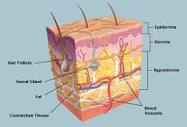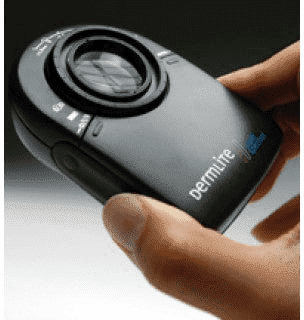“with the number of melanoma (MM) cases increasing each year, it is believed that the disease could become one of the most common types of cancer in the United States by 2030″
In the world of cancer, both screening and prevention are put forth as a way to reduce the annual growth of cancer diagnoses and cancer deaths. The article linked and excerpted below explains how screening for high risk melanoma patients might be done.

While everyone supports the basic idea of skin cancer screening, as the article points out the USPSTF doesn’t promote screening everyone for skin cancer because they don’t think that skin cancer screening would reduce diagnoses and deaths from MM. In short, biopsy-ing millions of moles and/or freckles won’t necessarily prevent melanoma. The key then, is to identify high-risk MM patients.
Melanoma at a glance-
- Risks– UV Exposure, HPV, Genetics, Skin Pigment, Moles, Immunosuppression, Previous Skin Cancer Diagnosis,
- Symptoms- Mole, Shape (A,B,C,D,E), Itching, Bleeding,
- Diagnosis- Visual Inspection, Skin Biopsy,
- Prognosis– Staging, In-situ, I, II, III, IV, Five year survival rates
- Therapy– Conventional, Non-Conventional, Integrative, Alternative
I believe I have a better way to reduce MM diagnoses and deaths. I have six of the above listed risks for melanoma. I took these precautions because I am a cancer survivor of a different cancer called multiple myeloma. I have had a bone marrow transplant, underwent lots of radiation during treatment and got sun-burned frequently in my youth.
There are a host of lifestyle, nutritional and supplementation therapies that research has shown will reduce the risk of MM. Further, evidence shows that some or all of these therapies can reverse damage done by U.V. radiation. While I can’t sit her an tell you that nutrition, supplementation and lifestyle will make you look younger, I can sit here and tell you that you can significantly reduce your risk of MM. I do. And I will continue doing so.
Are you at high-risk of developing melanoma? Have you already been diagnosed with MM and would like to reduce your risk of developing metastatic melanoma?
To Learn More About Melanoma- click now
Scroll down the page, post a question or a comment and I will reply to you ASAP.
Thank you,
David Emerson
- Cancer Survivor
- Cancer Coach
- Director PeopleBeatingCancer
Recommended Reading:
“And with the number of melanoma cases increasing each year, it is believed that the disease could become one of the most common types of cancer in the United States by 2030. Promoting and developing national screening strategies may help to reduce deaths due to melanoma. According to a new article, “it is time to embrace the opportunity to decrease melanoma mortality through risk-stratified education and screening…”
The U.S. Surgeon General recently issued a call to action to prevent skin cancer. However, screening for melanoma currently is not supported by U.S. Preventive Services Task Force skin cancer screening guidelines. The U.S. Preventive Services Task Force has expressed several concerns regarding population-wide screening for skin cancer, including uncertainty whether screening would reduce deaths, having patients undergo unnecessary tissue biopsies and the cost associated with screening individuals who have a low-risk for developing skin cancer…
Moffitt physicians suggest that melanoma screening strategies may be more feasible by focusing on high-risk populations, such as middle-aged and older patients, and using newer diagnostic tools…”
“Skin cancer is the most common type of cancer in the United States, affecting 1 in 5 people during their lifetime.
The majority of skin cancer cases are basal cell and squamous cell carcinomas, also known as nonmelanomas. These are both highly curable and rarely fatal.
Another type of skin cancer, melanoma, is less common. It affects about 1 in 27 men and 1 in 40 women in their lifetime, according to the American Academy of Dermatology.
Catching melanoma early is key. It’s more likely to spread and harder to cure. Because of this, melanoma has a higherTrusted Source death rate.
But in its early stages, before it spreads beyond the skin’s outer layer, melanoma is much easier to cure. This is why regular skin cancer screenings are so important if you’re at risk for skin cancer…
Warning signs of skin cancer
Whether you just happen to notice something abnormal or you’re performing a self-exam, here are the warning signs and symptoms of different types of skin cancer.
For basal cell carcinoma:
- a waxy looking bump
- a flat, flesh-colored lesion
- a brown scar-like lesion
- a sore that bleeds or scabs, then heals and comes back
For squamous cell carcinoma:
- a firm, red nodule
- a flat lesion with a scaly or crusty surface
For melanoma:
- a large brown spot with darker specks
- a mole that changes size, color, or feel
- a mole that bleeds
- a small lesion with irregular borders and variations in color
- a painful lesion with itching or burning
- dark lesions on your:
- fingertips
- palms
- toes
- soles
- mucous membranes lining the mouth, nose, vagina, and anus
What to do if you think you need to be screened
If you think you should be screened, talk to your primary care doctor, or make an appointment to see a dermatologist.
Be sure to mention if you’ve noticed any changes to your skin. It may also help to take a photo of the area of concern so your doctor can monitor changes.




